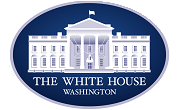Government/Policy

June 29, 2022
Biden Raises Tariffs on Some Russian Steel, Ali and Ferroalloys to 35%
Written by Michael Cowden
President Joe Biden has increased tariffs on some Russian and Belarussian steel, ferroalloys, and aluminum products to 35%, according to a presidential proclamation signed earlier this week and related documents.
That’s a significant increase from already higher duties on some products that went into effect earlier this year when Russia and Belarus were stripped of what’s known as “permanent normal trade relations.”
![]()
“I have determined that increasing the column 2 rates of duty to 35 percent ad valorem on certain other products of the Russian Federation, the importation of which has not already been prohibited, is warranted and consistent with the foreign policy interests of the United States,” Biden wrote in a presidential proclamation dated Monday, June 27.
Temporary authority for the president to unilaterally increase tariffs on Russia and Belarus was granted by a bill signed into law in April.
“Column 2 rates” are applied to countries – such as Russia, Belarus, and North Korea – with whom the US has effectively cut trade relationships. Lower “Column 1 rates” are reserved for countries – most of the rest of the world – with whom the US continues to hold “normal” trade relations.
Biden’s proclamation – and the new rates spelled out in an attached “Appendix A” – mean duties on Russian goods are now even higher than the Column 2 rates. An “Appendix B” to the proclamation adds 35% duties to Belarus as well.
The list of steel and steel-making raw material products subject to higher duties includes slab, several pipe categories, certain fabricated products made from steel and a number of ferroalloys, including ferrosilicon. Some notable products are in the table below. Click the image to enlarge it.
The Commerce Department on referred questions from SMU to USTR. USTR did not respond to our questions.
By Michael Cowden, Michael@SteelMarketUpdate.com








